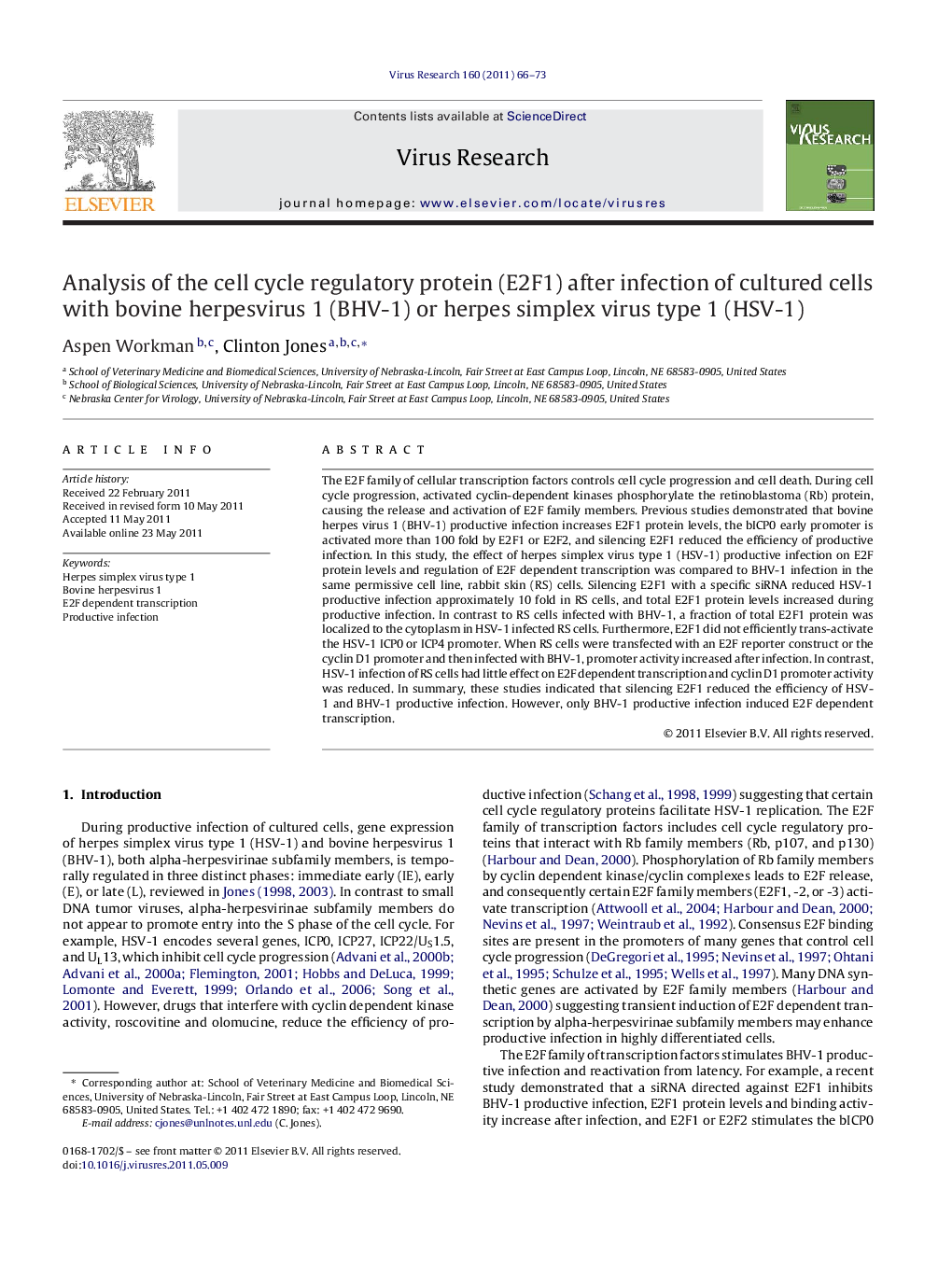| Article ID | Journal | Published Year | Pages | File Type |
|---|---|---|---|---|
| 6143345 | Virus Research | 2011 | 8 Pages |
Abstract
The E2F family of cellular transcription factors controls cell cycle progression and cell death. During cell cycle progression, activated cyclin-dependent kinases phosphorylate the retinoblastoma (Rb) protein, causing the release and activation of E2F family members. Previous studies demonstrated that bovine herpes virus 1 (BHV-1) productive infection increases E2F1 protein levels, the bICP0 early promoter is activated more than 100 fold by E2F1 or E2F2, and silencing E2F1 reduced the efficiency of productive infection. In this study, the effect of herpes simplex virus type 1 (HSV-1) productive infection on E2F protein levels and regulation of E2F dependent transcription was compared to BHV-1 infection in the same permissive cell line, rabbit skin (RS) cells. Silencing E2F1 with a specific siRNA reduced HSV-1 productive infection approximately 10 fold in RS cells, and total E2F1 protein levels increased during productive infection. In contrast to RS cells infected with BHV-1, a fraction of total E2F1 protein was localized to the cytoplasm in HSV-1 infected RS cells. Furthermore, E2F1 did not efficiently trans-activate the HSV-1 ICP0 or ICP4 promoter. When RS cells were transfected with an E2F reporter construct or the cyclin D1 promoter and then infected with BHV-1, promoter activity increased after infection. In contrast, HSV-1 infection of RS cells had little effect on E2F dependent transcription and cyclin D1 promoter activity was reduced. In summary, these studies indicated that silencing E2F1 reduced the efficiency of HSV-1 and BHV-1 productive infection. However, only BHV-1 productive infection induced E2F dependent transcription.
Related Topics
Life Sciences
Immunology and Microbiology
Virology
Authors
Aspen Workman, Clinton Jones,
